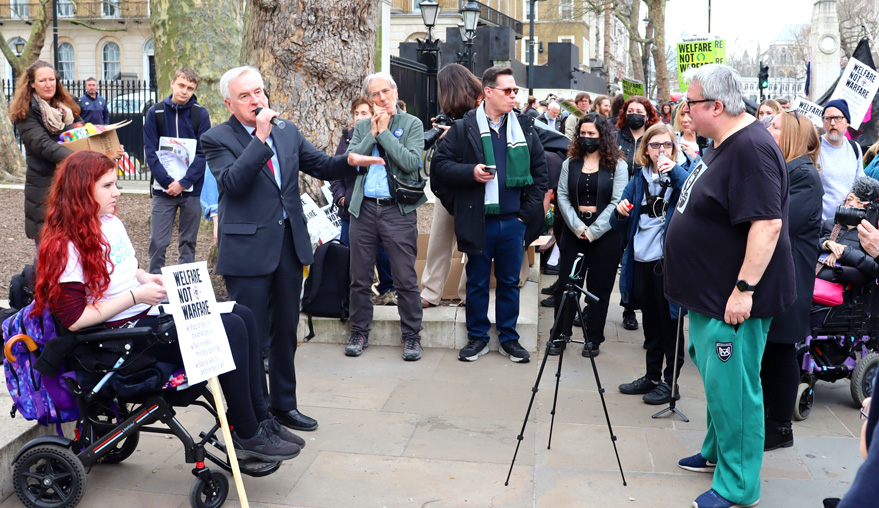
KEIR Starmer and Rachel Reeves are facing the most significant internal revolt since taking office, as more than 30 Labour backbenchers prepare to oppose government plans to tighten access to disability benefits.
The proposed changes, which would make it harder to claim incapacity benefits and personal independence payments (PIP), are expected to affect nearly four million people.
The backlash follows Wednesday’s Spring Statement, in which the Chancellor outlined the measures. An official impact assessment released alongside it warned that around 250,000 individuals — including 50,000 children — could fall into relative poverty as a direct result.
The Resolution Foundation forecast that low-income households stand to lose an average of £500 a year over the next five years due to the changes.
At the same time, new figures revealed a record 4.45 million children are now living in poverty in the UK, after housing costs — a rise from 4.33 million the previous year.
The Department for Work and Pensions confirmed this is the highest level since comparable records began in 2002/03.
A household is classified as being in relative poverty if its income falls below 60 per cent of the national median, after housing expenses.
Richard Burgon, who was suspended from Labour last year for opposing the two-child benefit cap, warned: ‘If the government doesn’t drop it, I’ll vote against it. This isn’t an issue just for the left of the parliamentary Labour Party. It’s not a left-right issue in the Labour Party. It’s a right or wrong issue.’
Jon Trickett, Labour MP for Normanton and Hemsworth, echoed the sentiment: ‘I will not be voting for cuts to the poorest people on welfare benefits. The Chancellor has other options. Picking on disabled people is not the right thing to do.’
Brian Leishman, Labour MP for Grangemouth and Alloa, added: ‘The Spring Statement had awful cuts that will impact disabled people. The “tough political choice” of cuts would be avoided if the government decided to tax multi millionaires instead. I told “Disabled People Against Cuts” that I’ll vote against cuts to disability benefit.’
Despite the scale of dissent, Labour’s commanding majority following its landslide election win in July means the reforms are still likely to pass.
However, the rebellion has intensified criticism of the government’s approach, with campaigners and analysts warning of severe social consequences.
Save the Children described the rising child poverty rate as ‘a source of national shame’ and cautioned: ‘Without immediate action, this could be the first Labour government that oversees a significant rise in child poverty – a record no-one wants.’
Defending the reforms, Reeves said: ‘I am absolutely certain that our reforms, instead of pushing people into poverty, are going to get people into work.
‘And we know that if you move from welfare into work, you are much less likely to be in poverty.
‘That is our ambition, making people better off, not making people worse off, and also the welfare state will always be there for people who genuinely need it.’